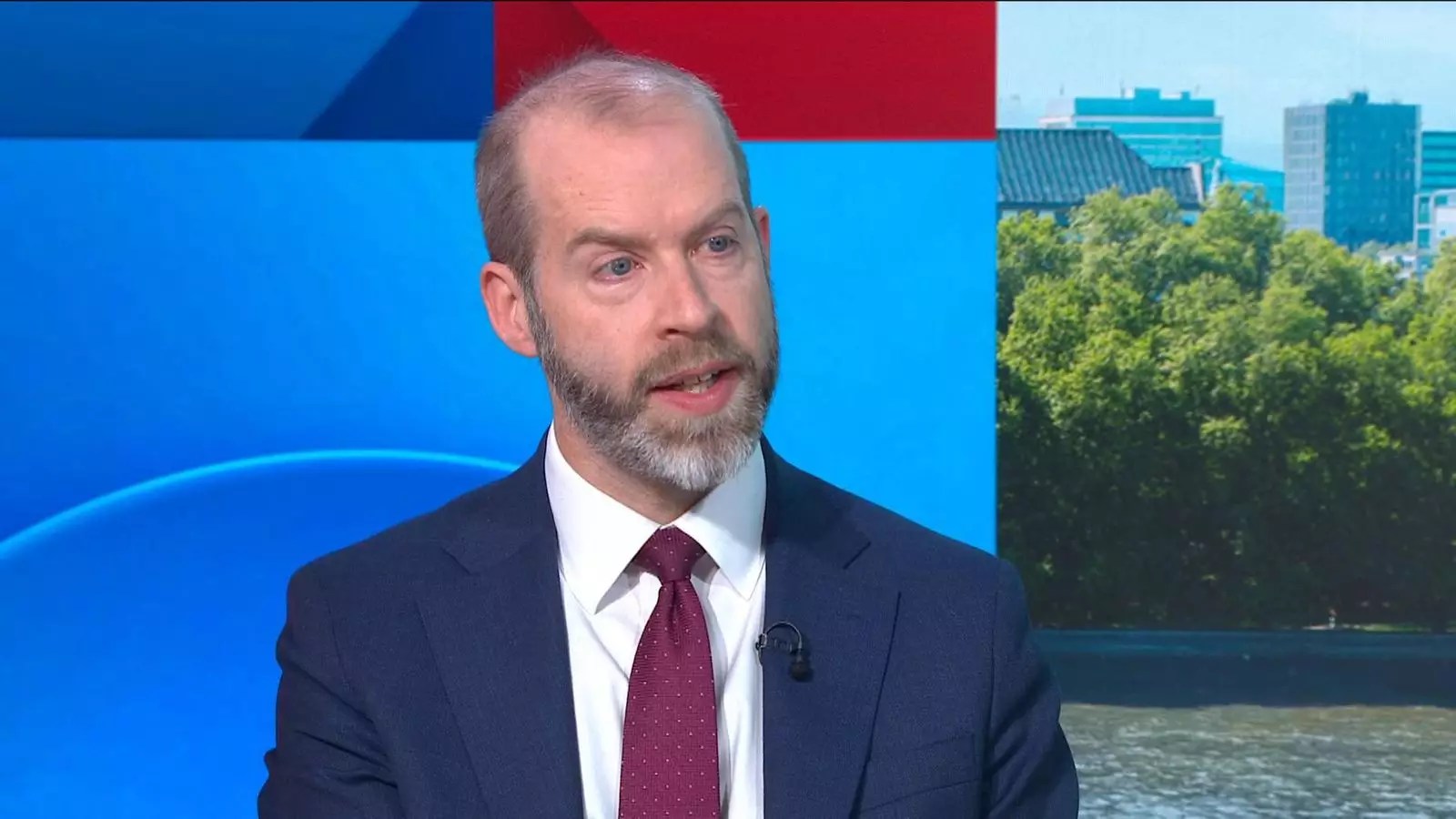The tumultuous saga surrounding British Steel highlights not just the fragility of a key sector in the UK’s economy but also the misguided decisions that brought us to this precarious juncture. At the heart of this debate is the British government’s recent decision to intervene in the operations of British Steel, previously owned by the Chinese company Jingye. Business Secretary Jonathan Reynolds’ candid admission that he would not consider incorporating a Chinese entity into the sensitive steel sector again underlines a growing consensus that certain industries require a more localized focus and vigilance. The urgency of recent measures, including the rushed passage of the Steel Industry (Special Measures) Bill, reveals the flaws in a strategy that too easily embraced foreign ownership without adequate safeguards.
The Fragility of Foreign Ownership
Jingye’s purchase of British Steel in 2020 was initially viewed as a lifeline for a beleaguered industry teetering on the brink of collapse. However, the subsequent failure of Jingye to maintain consistent supply chains raises serious concerns about the viability of foreign investment in sectors deemed critical to national security. When Jingye suddenly canceled crucial orders for raw materials necessary for steel production, it became shockingly clear that reliance on a distant corporation—particularly one based in a country with vastly different economic values and practices—was a gamble that the UK could not afford to lose. The steel sector should serve the interests of the UK workforce and economy, not merely the profit margins of distant shareholders.
Government Intervention: A Necessary Evil
The rapid implementation of emergency legislation by the government signifies an acknowledgment that Britain’s steel industry is not just another commodity market—it is the backbone of countless jobs and communities across the nation. The powers granted to the government through this legislation, which enable it to essentially take control of British Steel, might be seen as a sign of desperation, but they are also a reflection of the gravity of the situation. It’s not merely a legal maneuver; it is a rare intersection where public interest convenes with industrial policy. Yet, the approach is double-edged—it represents a failure of foresight on the part of previous administrations that allowed foreign control of such a sensitive sector in the first place.
The Balancing Act: Finding a New Path Forward
While the immediate response to the crisis has been to consider public ownership of British Steel as a potential solution, Reynolds’ hint at seeking a commercial private sector partner is a clear indication that the government understands the complexities involved. The steel industry in the UK requires an investment not just in terms of capital but also in innovation and technology adaptation for the modern age. There lies a potential opportunity here—for businesses that are willing to invest deeply and consider the long-term implications of their operations. However, this “bridge” to a private solution must be built with caution, mindful of the lessons learned from the past weeks.
A Reflection of Broader Sentiments
The debates surrounding British Steel also resonate beyond the immediate context; they echo the sentiments of a population weary of unbridled capitalism that often undermines local interests in favor of global players. Andrew Griffith, the shadow business secretary, has framed the government’s approach as a “botched nationalization,” a term that underscores the urgency for a more coherent strategy moving forward. The taxpayer base may be footing the bill for a business that remains under foreign control—a tightrope walk that could easily tip into a crisis of confidence among UK citizens regarding their government’s priorities.
Amidst these turbulent times, the UK must reevaluate its approach to vital sectors like steel. As the government grapples with the consequences of its past decisions, it has an opportunity to rethink what it means to prioritize national interests in an increasingly interconnected world. A deep, introspective look at not only the structure of ownership but also the values driving it could lead to a more robust and resilient industry. The stakes couldn’t be higher.


Leave a Reply